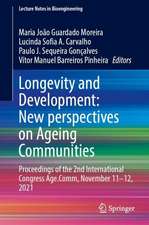Synthetic Biology: A Sociology of Changing Practices
Autor A. Balmer, K. Bulpin, S. Molyneux-Hodgsonen Limba Engleză Hardback – 22 feb 2016
Preț: 639.90 lei
Preț vechi: 752.83 lei
-15% Nou
Puncte Express: 960
Preț estimativ în valută:
122.48€ • 127.38$ • 102.64£
122.48€ • 127.38$ • 102.64£
Carte tipărită la comandă
Livrare economică 13-27 martie
Preluare comenzi: 021 569.72.76
Specificații
ISBN-13: 9781137495419
ISBN-10: 1137495413
Pagini: 224
Ilustrații: VIII, 207 p.
Dimensiuni: 140 x 216 x 14 mm
Greutate: 0.4 kg
Ediția:1st ed. 2016
Editura: Palgrave Macmillan UK
Colecția Palgrave Macmillan
Locul publicării:London, United Kingdom
ISBN-10: 1137495413
Pagini: 224
Ilustrații: VIII, 207 p.
Dimensiuni: 140 x 216 x 14 mm
Greutate: 0.4 kg
Ediția:1st ed. 2016
Editura: Palgrave Macmillan UK
Colecția Palgrave Macmillan
Locul publicării:London, United Kingdom
Cuprins
1. Synthetic Biology in Situ
Coda One: Towards Collaborative Practices
2. Barriers
Coda Two: Brokering Relations
3. Bacteria
Coda Three: Critics on the Inside
4. Bodies
Coda Four: Reciprocal Reflexivity
5. Enacting Ontologies, Failure and Time
Coda Five: Reflections on Collaboration
Coda One: Towards Collaborative Practices
2. Barriers
Coda Two: Brokering Relations
3. Bacteria
Coda Three: Critics on the Inside
4. Bodies
Coda Four: Reciprocal Reflexivity
5. Enacting Ontologies, Failure and Time
Coda Five: Reflections on Collaboration
Notă biografică
Andrew S. Balmer is Lecturer in Sociology at the University of Manchester, UK, and a member of the Morgan Centre for Research into Everyday Lives. His research is concerned with everyday life, science and technology. His interests span across diverse topics, including: lie detection, lying and deception; neuroscience and dementia; synthetic biology, and; interdisciplinary collaboration.
Katie Bulpin is a doctoral student in Sociological Studies at the University of Sheffield, UK and Research Associate in Sociology at the University of Manchester, UK. Her doctorate explores the co-production of novel epistemic communities and novice practitioners. Her research interests have centred on the emergence and consolidation of synthetic biology, and the development of creative methods.
Susan Molyneux-Hodgson is Senior Lecturer in Sociology and currently Director of Research in the Department of Sociological Studies, University of Sheffield. UK. She is Director of SATIS (Science and Technology in Society) research group in Sheffield, which supports doctoral and early career researchers in STS. Her research interests include: the sociology of scientific communities; science and society relations, and; interdisciplinary collaboration.
Katie Bulpin is a doctoral student in Sociological Studies at the University of Sheffield, UK and Research Associate in Sociology at the University of Manchester, UK. Her doctorate explores the co-production of novel epistemic communities and novice practitioners. Her research interests have centred on the emergence and consolidation of synthetic biology, and the development of creative methods.
Susan Molyneux-Hodgson is Senior Lecturer in Sociology and currently Director of Research in the Department of Sociological Studies, University of Sheffield. UK. She is Director of SATIS (Science and Technology in Society) research group in Sheffield, which supports doctoral and early career researchers in STS. Her research interests include: the sociology of scientific communities; science and society relations, and; interdisciplinary collaboration.
Textul de pe ultima copertă
This book explores the emergence of a new scientific field, synthetic biology, and the many bold promises its proponents have made to change the future of science, industry, humanity and the global environment. It explores how people, including academics, students, industrialists and governance actors, tried to change their practices to bring engineering and biology together, and to realise such promises from within their everyday lives. It focuses on an ethnographic case study of an academic project that aimed to demonstrate the field's promise for solving water industry problems, from leaky pipes to climate change. In doing so, the book weaves together stories of barriers, bacteria and bodies, examining how they were entangled as people tried to make connections between academia and industry. It also reflects on the authors' attempts to work collaboratively with natural scientists and engineers, reflecting on current debates about the role of sociology in such interdisciplinary projects. The book contributes to contemporary studies of science and technology by highlighting issues such as ontology, practices, failure and time.























